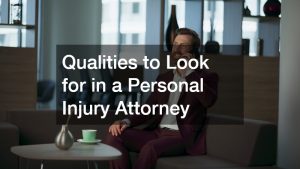- Prioritize personal well-being and health when managing a permanent disability, including mental and emotional health.
- Seek assistance from advocacy groups, legal aid, and vocational rehabilitation services to navigate disability-related challenges.
- Continuous learning and upskilling can help offset career disruptions and enhance employability despite a disability.
- Maintaining positivity, adaptability, and determination can help individuals continue personal growth and professional fulfillment despite disabilities.
A permanent disability can profoundly disrupt life, particularly one’s career. Individuals with permanent disabilities often face numerous challenges in their employment journey. According to the U.S. Bureau of Labor Statistics, the employment-population ratio for persons with a disability was 21.3 percent, significantly lower than the 65.4 percent for persons without a disability. Furthermore, research indicates that people with disabilities are more likely to work part-time and less likely to be promoted. This disparity hampers their career growth and impacts their economic stability, perpetuating a cycle of hardship and dependency.
Unfortunately, you might face the same situation when a permanent disability stops your career. However, there are steps you can take to manage this situation and continue living a fulfilling life. Here are a few suggestions to consider if you find yourself in this challenging position.
Prioritize Yourself First

When faced with a permanent disability, making yourself a priority is not only essential, it’s necessary. First and foremost, attend to your health and well-being. This could mean seeking professional help, scheduling regular check-ups, and adhering to prescribed treatments and medications. As your healthcare providers recommend, investing time in physical therapy or rehabilitation is also crucial.
In managing a disability, mental and emotional health are equally important. Consider accessing counseling or support groups that can provide emotional support, help you navigate your feelings, and assist in developing coping strategies. Prioritizing self-care also involves taking time for activities you enjoy, maintaining a balanced diet, and ensuring adequate rest.
Remember, your disability is only one aspect of your life and doesn’t define you. You can adapt and find new avenues for personal and professional fulfillment by placing your health and well-being at the forefront.
Seek Assistance

Unfortunately, navigating the world of disabilities and employment can be challenging. You might face discrimination, lack of accessibility, or even ignorance from employers and colleagues. In such instances, seeking assistance from advocacy groups or legal aid organizations can provide valuable support.
These groups can offer guidance on your rights as a person with a disability and help you navigate the necessary accommodations in the workplace. Here are a few examples:
Financial Assistance
In the wake of a career interruption due to a permanent disability, financial stability can be a significant concern. Various governmental and non-governmental organizations offer financial aid and benefits to those with disabilities. For instance, the Social Security Disability Insurance (SSDI) program provides income replacement if you’ve paid into Social Security via your workplace. It’s crucial to explore these options and apply for assistance if needed.
Vocational Rehabilitation Services
Several states have vocational rehabilitation (VR) programs aimed at helping individuals with disabilities return to work. These programs often provide job training, job placement, and counseling. VR programs can be instrumental in helping you adapt your skills to new job requirements or find work that suits your abilities.
Legal Aid
Understanding and navigating the complexities of getting long-term disability claims can be challenging. Hiring a disability lawyer or legal aid service can help clarify your rights, guide you through the process, and increase the chances of a successful claim. They can also assist in appealing denials and ensuring you access the benefits you’re entitled to.
Community Support
Local communities often provide resources and support for individuals with disabilities. Community organizations might offer services like transportation, respite care, or home modifications. They can also be a source of emotional support and connection, helping to combat feelings of isolation. Connecting with these organizations can significantly enhance your quality of life and provide practical assistance.
Continuous Learning
Continuous learning is a powerful tool that can help offset the impact of a permanent disability on your career. By actively seeking out new knowledge, skills, and experiences, you can open up a wide range of professional opportunities. Continuous learning can help you adapt to new technologies, improve your problem-solving skills, and stay updated with industry trends. It allows you to demonstrate your adaptability and resilience to prospective employers, making you a valuable asset in the workplace.
Online platforms, such as Coursera, LinkedIn Learning, and Udemy, offer courses across various disciplines, often with the option to earn certifications upon completion. Such certificates can bolster your resume and increase your employability. Learning a new technology tool or software can also open up remote working opportunities, providing flexibility that can be beneficial when managing a disability.
Beyond formal training and certifications, you should consider softer communication, leadership, and emotional intelligence skills. These are universally valued in the workplace and can help you excel in your career despite any physical challenges.
Remember, continuous learning isn’t just about professional growth. It can also enhance personal development, boost self-confidence, and increase life satisfaction. Through education, you’re building a career and crafting a fulfilling and resilient life despite your disability.
Final Thoughts
Being confronted with a permanent disability stopping your career can be overwhelming, but it doesn’t have to define your journey. Prioritizing self-care, seeking assistance, and continuously learning are all powerful tools to help you navigate this challenging situation. Remember to stay positive, adaptable, and determined as you explore new avenues for personal growth and professional fulfillment. Your disability may have altered your career path, but it doesn’t have to inhibit your potential for success and happiness.






